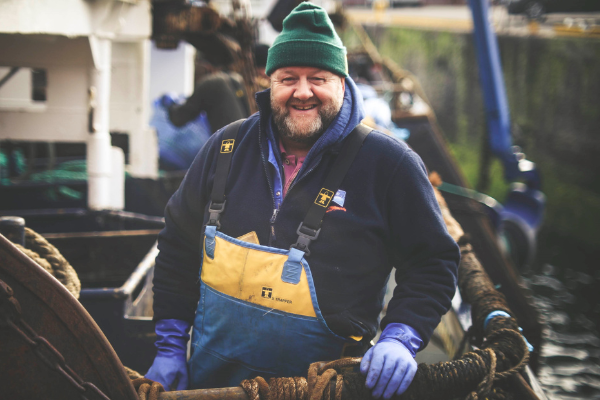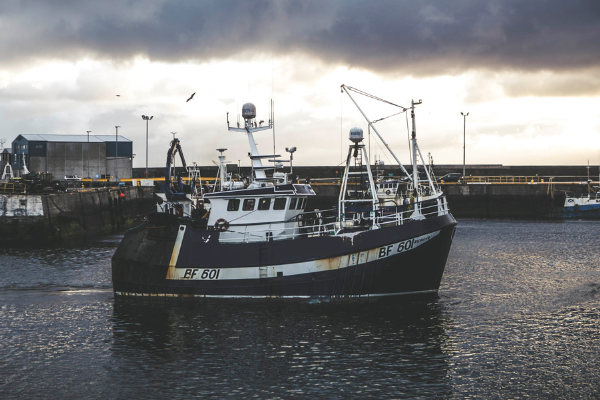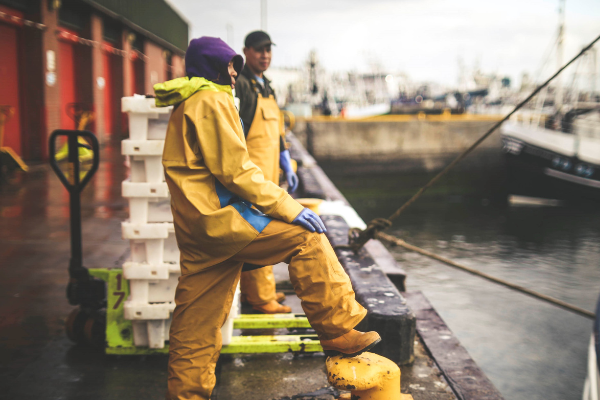What is Project UK?
The Marine Stewardship Council facilitates fishery improvement projects (FIPs) through its Pathway to Sustainability programme, including those in Project UK. Project UK is a series of eight FIPs covering 12 fisheries around the UK. The FIPs cover a range of target species, gear types, locations and fishery sizes, and were selected due to the commercial, economic and cultural benefits they bring to fishing communities and supply chains within the UK.

What progress have the Round 1 FIPs made to date?
The first round of Project UK FIPs were launched in 2017 and have now reached the end of their five-year timeline. Let’s look at the achievements to date:
- Since the Round 1 FIPs started, there have been 44 performance indicator score improvements across the FIPs. Not only have we seen improved stock assessments showing many of the target species are healthy and being fished at sustainable levels, the wider impacts of the fisheries have also improved.
- Progress includes increased understanding of non-target species, recording protocols for interactions with endangered, threatened and protected species, and research into the habitat and ecosystem impacts from the fisheries.
- In 2018, plaice became MSC certified under the Scottish Fisheries Sustainable Accreditation Group certificate and was recertified in June 2022.
All the FIPs have maintained their A-C rating on the FisheryProgress.org website over the duration of their timelines thanks to the hard work from the Steering Group members, Poseidon (the independent consultants) and the Secretariat team in the MSC.

Trouble at sea
During this five-year timeline, however, there have been two major, unprecedented disruptions: the vote for and subsequent delivery of the UK’s EU Exit (Brexit), and the Covid-19 pandemic.
The FIPs have been subject to direct and indirect repercussions of this and some of the actions have been delayed. This includes Principle 3 management actions that are dependent on new fisheries legislation and the publication of the Joint Fisheries Statement (due November 2022). Principle 1 and 2 actions such as harvest strategy and harvest control rules have been indirectly delayed through requirements for social distancing limiting stock surveys, the ability for meetings and travel to take place, and the shifted focus to prioritising health and safety, and navigating post-Brexit red tape.
At the end of the original five-year timeline, two performance indicators remain at <60 and 37 at 60-79. The Year 5 annual review resulted in an additional 12 performance indicators to address as a result of uncertainty around future fisheries legislation, harmonisation with recent certified fisheries, and in anticipation of the expected raising of the bar in the new version of MSC Standard.

What’s next for the Round 1 FIPs?
After discussions with Round 1 funders and FIP Steering Groups, there was agreement that they remain committed to the success of Project UK through delivering on the actions in the FIP action plans. In order to achieve this, each FIP will be extended for a fixed time period, based on advice from the independent consultants, Poseidon, to ensure these actions are completed. This has been made possible thanks to additional funding from the Round 1 core funders. To maintain the high level of credibility, transparency and accountability of the FIPs we have:
- Updated FisheryProgress and agreed fixed extensions depending on the requirements of the FIP (one year for crab, lobster and lemon sole; two years for monkfish and Channel scallops).
- Commissioned new action plans from Poseidon that focus on the remaining actions, with milestones for progress aligned with external influences (such as the Joint Fisheries Statement).
- Included the Round 1 FIPs in discussions and requirements for social requirements as listed on FisheryProgress.org.
- Maintained public and transparent reporting of discussions, agreements and next steps.
